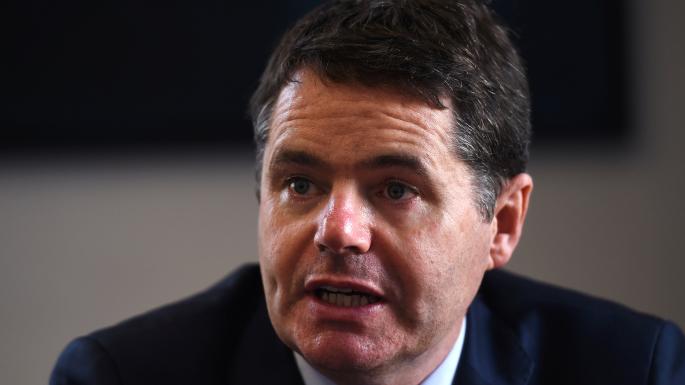
The government has no room to announce surprise tax cuts or spending increases in next week’s budget as the latest exchequer figures show that revenues are marginally below forecast for this year.
Tax receipts were €35.2 billion, an improvement of more than €1.8 billion year-on-year and 0.6 per cent below what the government had expected to collect at the start of the year.
Peter Vale, a tax partner at Grant Thornton, the consultancy firm, said that while the finance minister normally managed to “spring a rabbit out of the hat on budget day”, the latest exchequer figures did not suggest there would be any surprise tax cuts next Tuesday.
“It looks more likely that very modest tax cuts will be the order of the day, with middle-income earners the biggest beneficiaries if the mooted increase in the threshold for entering the higher income tax band is introduced.”
Fine Gael is considering a €1,000 increase in the income tax threshold to €34,800 at which workers would pay the 40 per cent higher rate of tax.
Micheál Martin, the Fianna Fáil leader, insisted yesterday that his party wanted a cut in the universal social charge as part of its confidence and supply agreement with Fine Gael. Paschal Donohoe, the finance minister, has €350 million of net fiscal space available, which means there is insufficient funds to do both unless other revenue-raising measures are introduced.
The latest exchequer figures show that government revenues exceeded expenditure by €2.34 billion over the first nine months of the year, which is a significant improvement on the deficit of €25 million in the same period last year. However, the state’s coffers were boosted by a one-off payment in June of €2.36 billion after the government’s sale of a 28 per cent stake in Allied Irish Banks. Excluding another one-off transaction last year, the state’s finances showed an underlying improvement of €535 million this year.
At the end of March tax receipts were running 3.9 per cent below the government’s target, but by the end of September the gap had narrowed to 0.6 per cent. Anecdotal evidence suggests the shortfall will be fully recovered when self-employed tax returns are filed next month, John Palmer, a principal officer at the Department of Finance, said.
Total net voted expenditure to the end of September was €33.1 billion, which was 0.8 per cent or €270 million below the government’s forecast but 5.2 per cent higher than the same period last year.
The government is targeting an overall budget deficit of 0.4 per cent this year before moving into a budget surplus next year for the first time in a decade.
“We are currently on track to meet our fiscal targets for 2017, providing a stable platform for budget 2018 and in line with plans to balance the books next year,” Mr Donohoe said yesterday.
Sinn Féin unveiled its pre-budget submission, which proposes €2 billion in extra taxes including a 7 per cent levy on any income earned above €100,000. The extra funding would be used to increase spending on social housing, childcare are other areas.
“In budget 2018, we have chosen a side; the side of ordinary people. Our priority for budget 2018 is to invest in public services and begin the process of solving the crises in health and housing,” Pearse Doherty, the party’s finance spokesman, said.
Sinn Féin also proposed abolishing the property tax at an annual cost to the exchequer of just under €500 million. “Citizens are literally dying on our streets, while families are forced to bring their children up in hotel rooms,” Mr Doherty said.
Dolores Kelly, the SDLP Upper Bann MLA, said that Sinn Féin’s “alternative budget” was “a bad joke” because of the absence of the functioning executive in the north. “Gerry Adams has some brass neck presenting an alternative budget in the South today given that his party failed to discharge the primary function of the Department of Finance in the North when their finance minister Mairtín Ó Muilleoir failed to produce a budget,” Ms Kelly said.
Northern Ireland faces cuts to its health funding among other areas because Stormont has been suspended since the start of the year. “Their crocodile tears for the disadvantaged fall flat when there are families on this island forced into food banks, or patients waiting months on hospital appointments because of the stalemate at Stormont,” Ms Kelly said. “Without an agreement, the North now faces a budget being set by a Tory secretary of state whose government is propped up by the DUP.”
